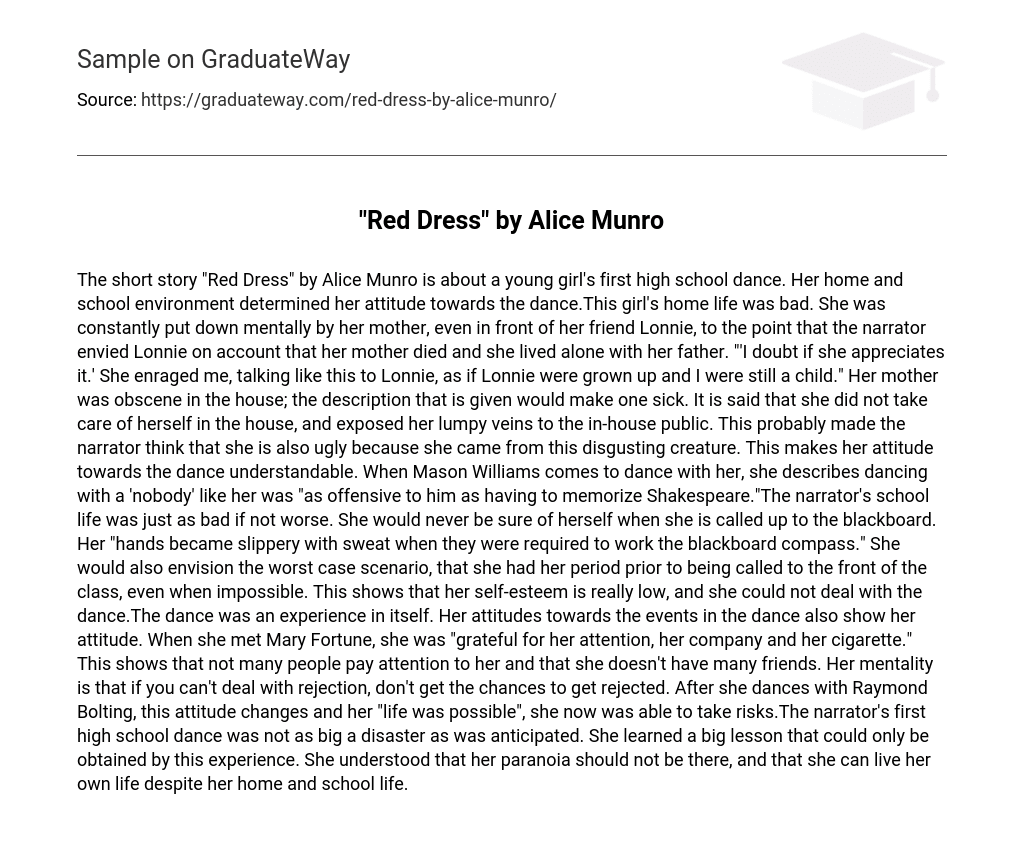“Red Dress” is a short story written by Alice Munro, which revolves around a young girl’s initial high school dance experience.
The dance was heavily influenced by the narrator’s home and school environment. In her unfortunate home life, she endured constant mental abuse from her mother, even in front of her friend Lonnie. This led the narrator to envy Lonnie, who lived alone with her father after her mother’s death. The narrator was enraged when her mother spoke disrespectfully about Lonnie, as if Lonnie were an adult and the narrator were still a child. Inside the house, the mother’s behavior was obscene and sickening. She neglected herself and exposed her unsightly veins to those inside the house. The narrator likely associated herself with her mother’s ugliness, which is why her attitude towards the dance is understandable.
When Mason Williams asked the narrator to dance, she compared the idea of dancing with someone like her to being forced to memorize Shakespeare, which she found highly offensive. The narrator’s school life was equally challenging, if not worse. Whenever she was called up to the blackboard, she lacked confidence and her hands would become sweaty when using the blackboard compass. She even feared the worst, imagining that she might start her period just before being called to the front of the class, even though it was unlikely. These experiences indicate her extremely low self-esteem and inability to cope with the dance. The dance itself was a unique experience, and her attitude towards its events further reflects her mindset.
When the narrator met Mary Fortune, she expressed gratitude for her attention, company, and cigarette. This demonstrates that few people pay attention to her and she lacks friends. Her mindset is that if she avoids rejection, she won’t have to face it. However, after dancing with Raymond Bolting, her perspective shifts and she feels that “life was possible,” giving her the confidence to take risks. The narrator’s first high school dance turned out to be less disastrous than expected, teaching her a valuable lesson that could only be learned through this experience. She realized that her paranoia was unnecessary and that she could live her own life despite her home and school circumstances.





